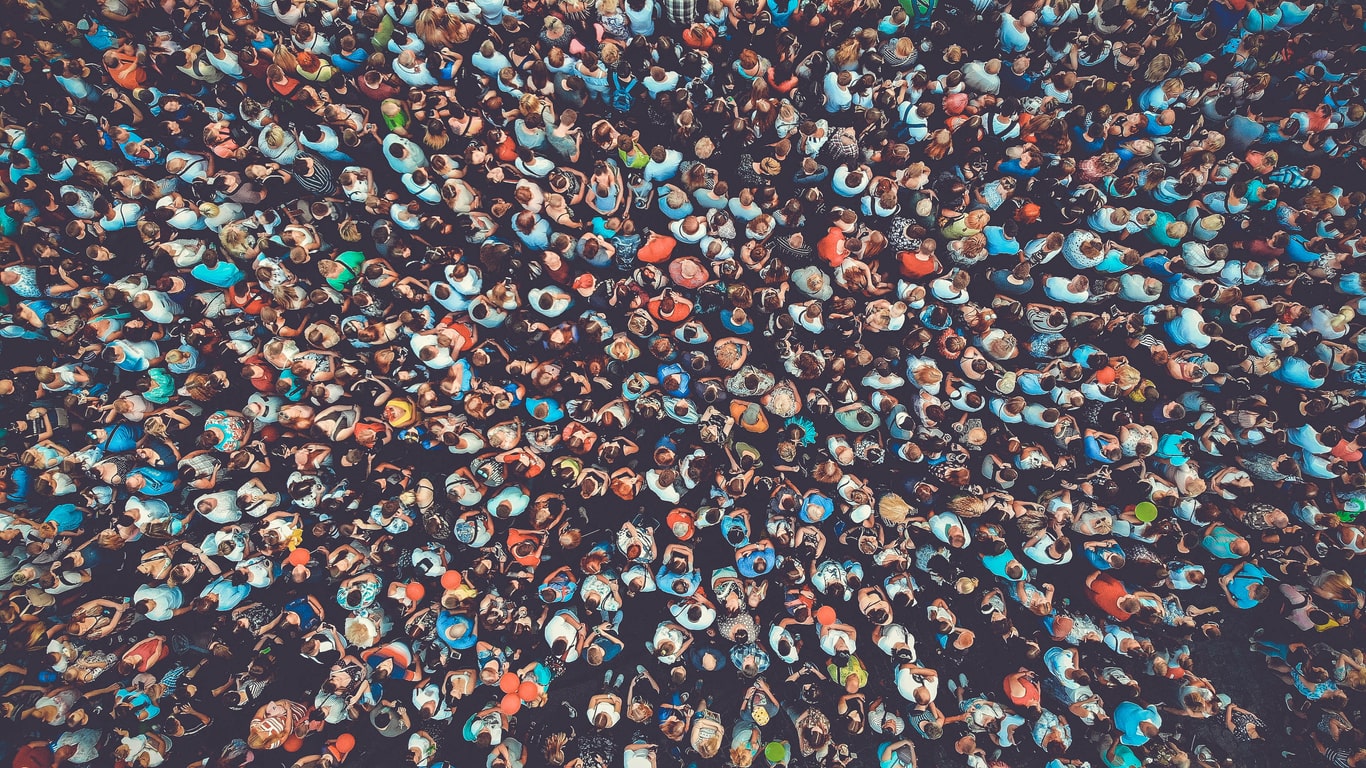Actually, any day now. Although it is impossible to know precisely the total number of people on the planet at any given time, and who or where will be the 8th million baby being born or their language or nationality, the United Nations has declared the 15th of November 2022 to be the official estimated date it happens. This sets an unprecedented milestone in human development and world population growth which is both celebrated and shunned by both popular opinion and the science communities around the world.
FAQ:
When did we reach 8 billion people?
Who is the 8 billionth person?
Can Earth support 11 billion?
What is the world population limit?
What is the world population?
Table of Contents:
Why is this significant?
As a frame of reference, in past world population milestones, 1960 marked the earth’s population at only 3 billion people on the planet. That means human growth has not only doubled but nearly tripled at a rate of roughly 1 billion each decade since that time. What’s the cause of such a rapid climb? While experts and scientists can only speculate, they agree that the cause of human population growth is largely due to increases in human life expectancy due to advances in medicine, improvements in public health, and increased awareness of personal nutrition and hygiene. World demographic changes are also to blame, as patterns of births, deaths, world economic growth, migration, and rising third-world economies are rapidly changing at a pace atypical of anything over the centuries in past human history.
Have we reached the peak capacity of people on the planet?
Recent news of the Day of 8 has reignited this question, though it has been a topic of debate for years with no definitive answer. In some intellectual circles, population alarmists officially referred to as “Malthusians”, named after 19th-century scientist and population theorist Thomas Malthus, speculate that planet earth has an absolute total population capacity of around 10 Billion human beings living on the earth which, according to current data and demographic trends, will inevitably be reached by the 2080’s. In their view, in accordance with Mathus’ findings, overpopulation will ultimately lead to political strife, starvation, unsustainable pollution, disease, and world war. In his theory, Malthus suggested that as the population of the world grows exponentially, food production is unable to meet demand and natural resources such as freshwater are also depleted faster than can be reproduced, leading to worldwide mass starvation and political turmoil. While this may seem a rising reality for some of us, Malthus couldn’t have predicted today’s advanced technologies with farm and factory food production and worldwide mass transport and logistics, however, not to mention the internet and new green energy sources.

Should we be concerned?
Since the number of people the earth can support is not actually a fixed figure, the way humans adapt to population growth and the planet’s resources will ultimately determine our fate. How we produce and consume natural resources and how it affects our environment estimates how future populations are sustained. Countries and societies need to take more responsibility as well to change how we live and function in relation to our natural environment. One interesting study found for instance that if the population of the country of the United States set a great example of this to change its national agricultural standards by switching to an all-vegetarian diet, the land used to grow crops for human consumption rather than animal feed for meat production would feed an additional 350 million Americans. At the moment though, around the world for most countries, agriculture policies, mining practices, and other industrial methods still remain stuck in their old ways with little concern for change. How many people on average would be willing to sacrifice access to their meat and dairy products for the sake of the planet though is doubtful at best. For this to happen, drastic cultural changes and new social norms would need to be established before industry would be willing to change its methods and policies.
Is there hope for the future of humanity?
For hopeful population theorists, the point of commemorating the Day of 8 milestone is not to reference a doomsday marker but “is an occasion to celebrate diversity and advancements, while considering humanity’s shared responsibility for the planet.” [ANTÓNIO GUTERRES, United Nations Secretary-General, 2022]
In other words, with today’s advanced technologies and groundbreaking new innovations, humanity could collectively solve economic, social, and environmental problems while continuing to allow humanity to grow. The possibility is there, whether it actually happens that way, however, is another matter altogether.
In good news though, While it took the global population over the course of 12 years to grow from 7 to 8 billion from 2010 to 2022, projections indicate it will take approximately 15 years from now until 2037 for it to reach 9 billion, a sign that the overall growth rate of the global population is actually declining. Studies estimate that as third-world economies rise up in socio-economic status, where females have increased access to education and family planning, couples are taking more control of their lives by electing to have fewer children or none at all in exchange for more career opportunities or free personal time.

Is there a solution?
Put another way, while the day of 8 should be a celebration of human prosperity and accomplishment, it should also be a cautionary warning for how we proceed into the future. If we continue down the same reckless path of environmental waste and industrial greed, there may be an upper limit on how many humans earth could support, but we can overcome this challenge by collectively taking responsibility for the planet and changing how we use and affect our natural resources. Working person to person, business to business, and industry to industry, together through innovation and developing new technologies to better manage our natural resources and economic and social affairs, humanity can both grow and prosper while maintaining the environment and protecting the planet we all share.
In a nutshell:
The world population is estimated to reach 8 billion people by 2022, an unprecedented milestone in human development. The cause of such rapid growth is largely due to advances in medicine, improvements in public health, and increased awareness of personal nutrition and hygiene. Some experts speculate that the planet earth has an absolute total population capacity of around 10 billion human beings, which will inevitably be reached by the 2080’s. In their view, overpopulation will ultimately lead to political strife, starvation, unsustainable pollution, disease, and world war. However, recent news of the Day of 8 has reignited this question, though it has been a topic of debate for years with no definitive answer. Countries and societies need to take more responsibility to change how we live and function in relation to our natural environment. With today’s advanced technologies and groundbreaking new innovations, humanity could collectively solve economic, social, and environmental problems while continuing to allow humanity to grow.




